how to draw 3d butterflies
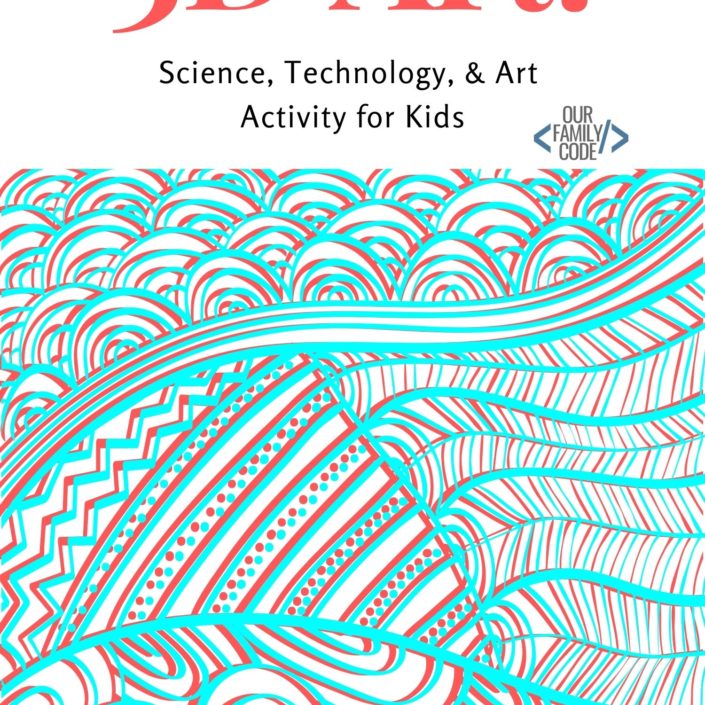
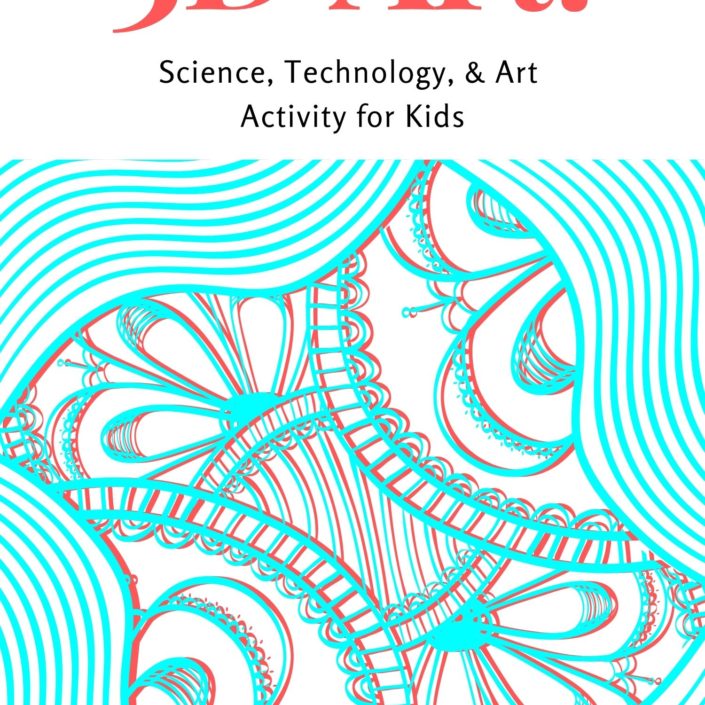
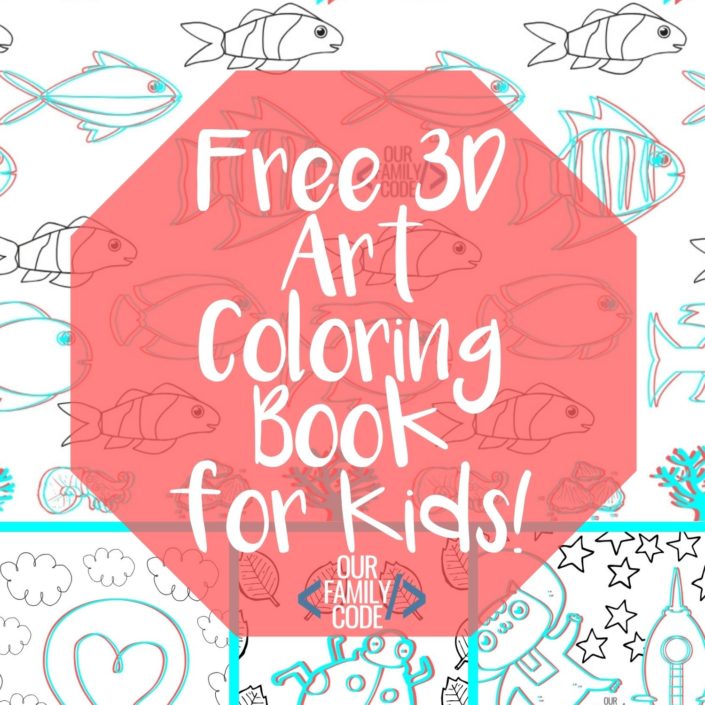
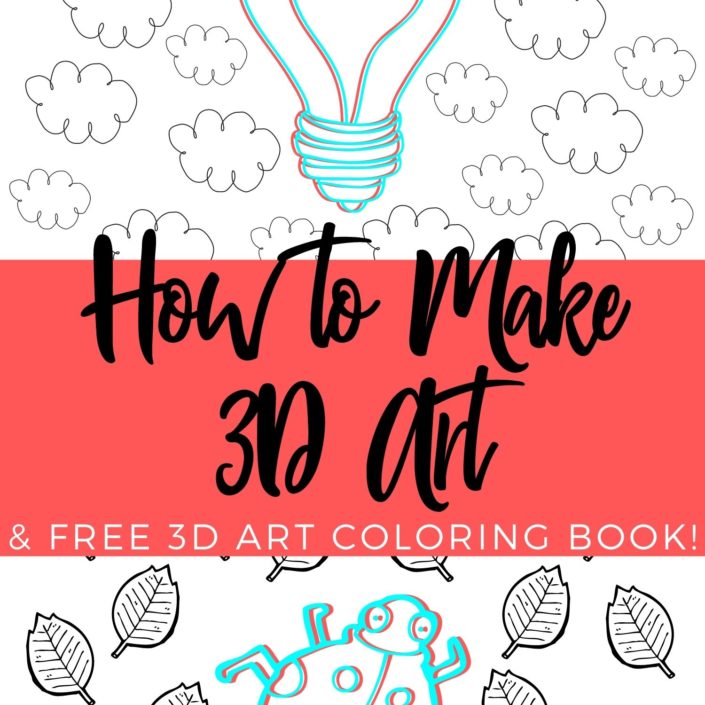
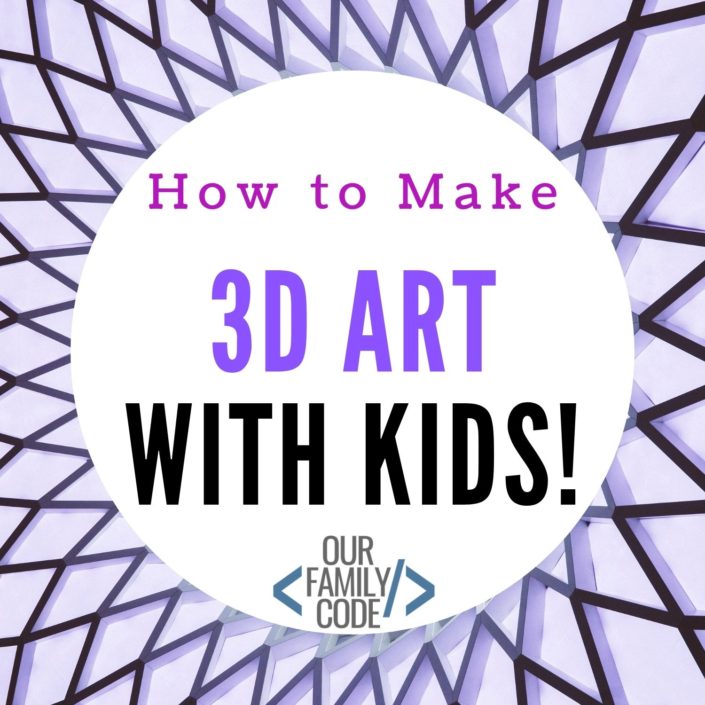
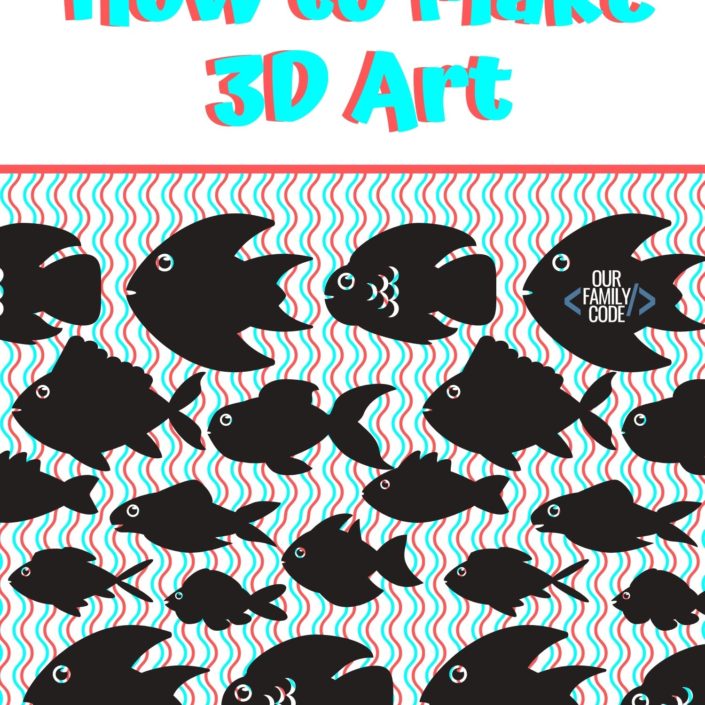
Learn how to draw 3D images and make anaglyph artwork and grab some free 3D fine art worksheets to learn how to draw red and blue 3D!
This 3D art activity is so much fun! I dear when fine art meets technology and this activeness includes the best of both worlds.
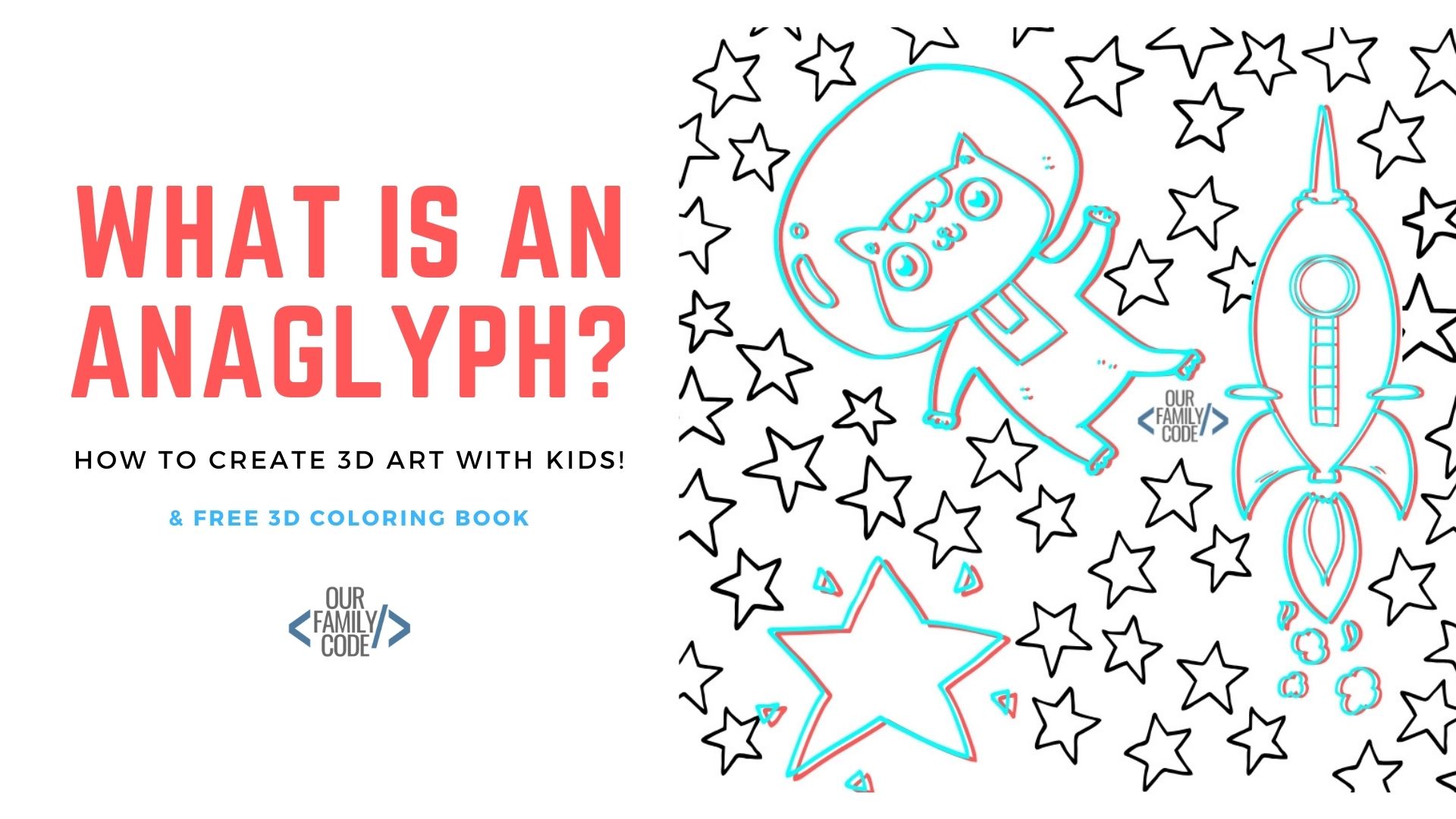
I'g a huge fan of perception activities. I fifty-fifty won 3rd place in the city science fair when I was in high school for my perception experiment where I gathered oodles of data to find correlations between social circles, education, and upbringing with how we perceive external stimuli like images!
3D illusion drawing is really easy to make and super fun to see the final results.
I had to kick Charlotte off her coloring just to get her to become to bed this night because she was having too much fun! I similar to think that alone is a job well done since she is my hardest kiddo to engage for projects similar these.
The full 3D art activity includes using computer photography programs, which might be better suited for kids in late elementary and heart schoolhouse. Don't stress though!
I turned my 5th grader into a K-iii, 3D fine art coloring book maker while we waited at dance form this afternoon! Yous can snag the full coloring book at the end of the post and everyone can join in on the technology side of this 3D art STEAM activity!
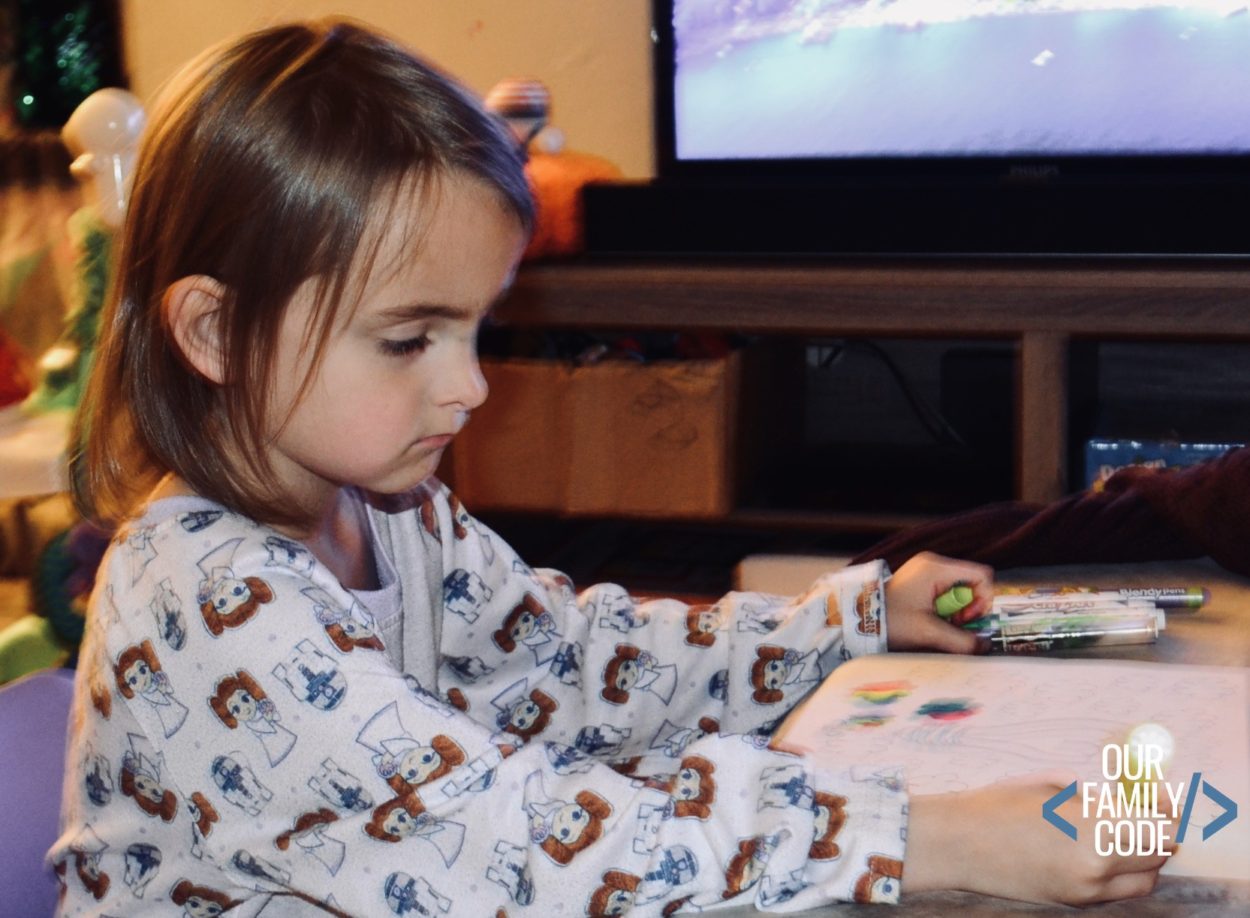
This post contains affiliate links. Every bit an Amazon Associate, Our Family Lawmaking earns from qualifying purchases. Please see our Disclosure Policy for more details.
Why STEAM Activities?
STEAM is the abbreviation for Science, Technology, Engineering, Art, and Math.
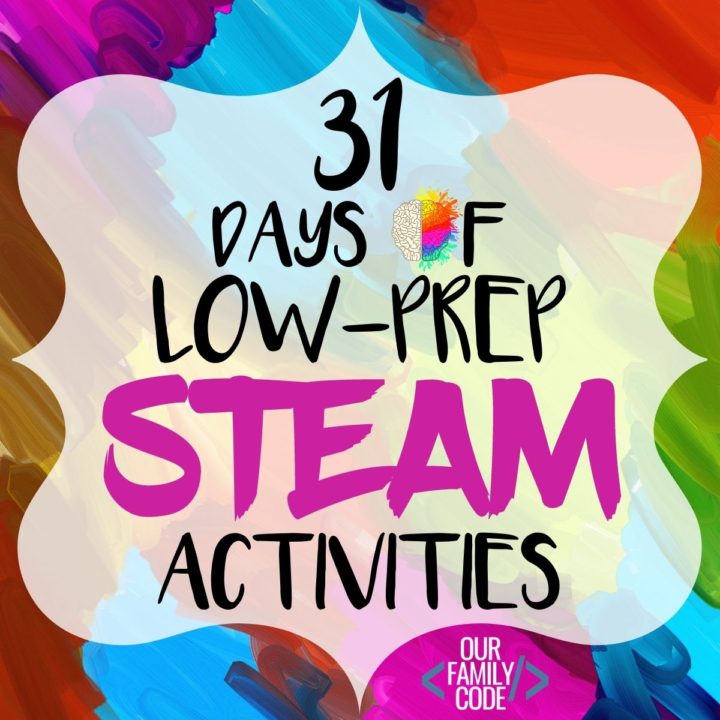
STEAM, like Stalk, is an integrated arroyo to learning that encourages learners to make connections between the concepts they are learning and how they apply them to real-world bug.
STEAM helps students ask questions, problem solve, call up creatively, and produce innovative solutions. Many schools take adopted STEAM learning activities into their curriculum, simply information technology's never likewise early to outset edifice critical thinking skills.
We love to learn through play at our house and have a blast doing activities for toddlers all the fashion to tweens!
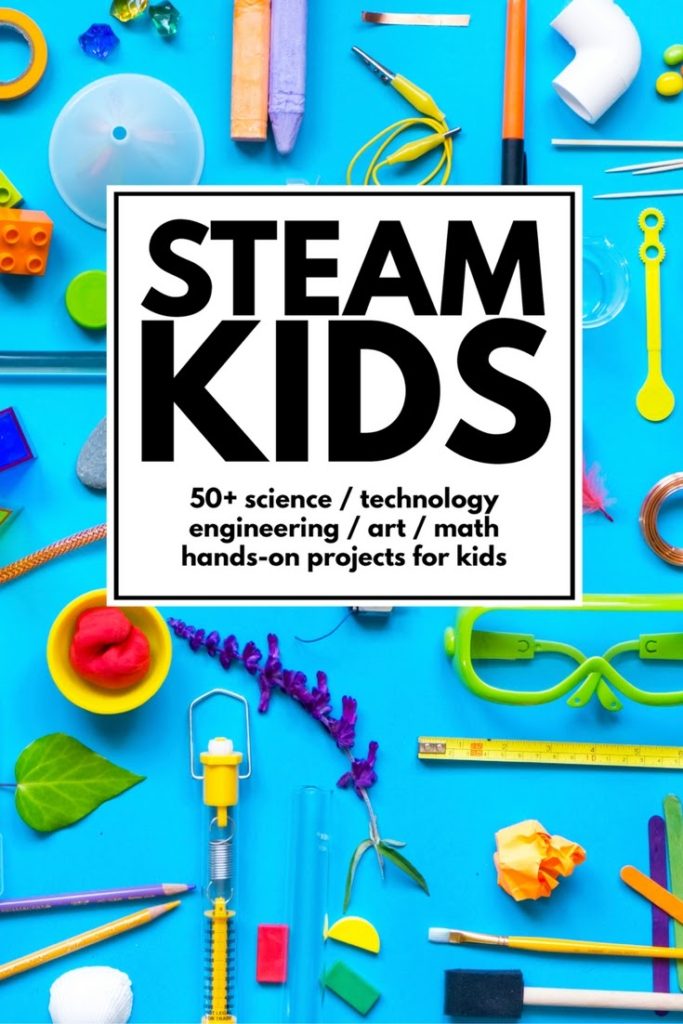
Cardinal 3D Action Terms
- Stereoscopic vision – a single perception of a slightly dissimilar image from each center that aids in depth perception
- Anaglyph –the proper noun given to the stereoscopic 3D effect achieved by using different filters to reveal two slightly different images for each eye.
3D Drawings & Anaglyphs for Kids Materials
- 3D spectacles with carmine and blue lens (Nosotros used our Learning Resources colour mixing glasses.)
- Blank pieces of paper
- Unlike shades of red & blue colored pencils or crayons (these red/bluish colored pencils are an easy purchase for a big group!)
- Light board (optional)
- Pencil
- Clipboard
How to Create 3D Drawings & Anaglyphs for Kids

Apply Red Pencil to Trace Your Drawing
Use scratch paper to make small lines with your cerise colored pencils, markers, and crayons. The cherry-red must completely disappear when you hold up your red lens to your lines and it must turn dark when you agree the blue lens to the cherry-red lines.
Apply Blue Pencil to Trace Your Drawing
Repeat the process for your blue colored pencils, markers, and crayons. The blue must disappear when you lot hold upwardly your blue lens to your lines and information technology must plow dark when you lot agree the crimson lens to the blue lines.
Use but the colors that work. Your 3D epitome will not work if your colors aren't correct.
The blueish that worked for us is a cyan and a red. We tested colored pencils, crayons, and markers and found that the colored pencils generated the all-time results for us.
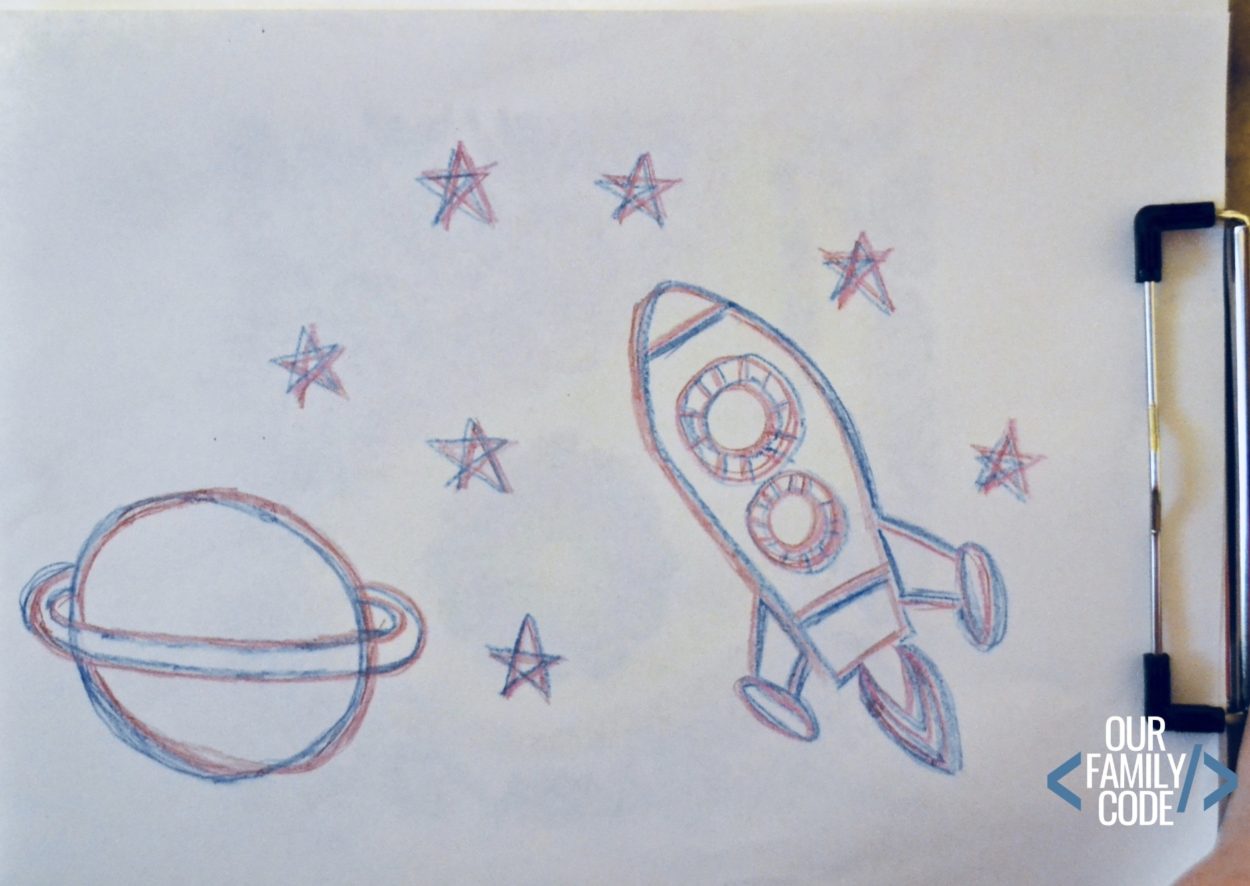
3D Image Exploration
Draw an image in pencil or marker on your paper. Nosotros printed an prototype and and so used a light board to trace our image onto a slice of paper with our reddish colored pencil.
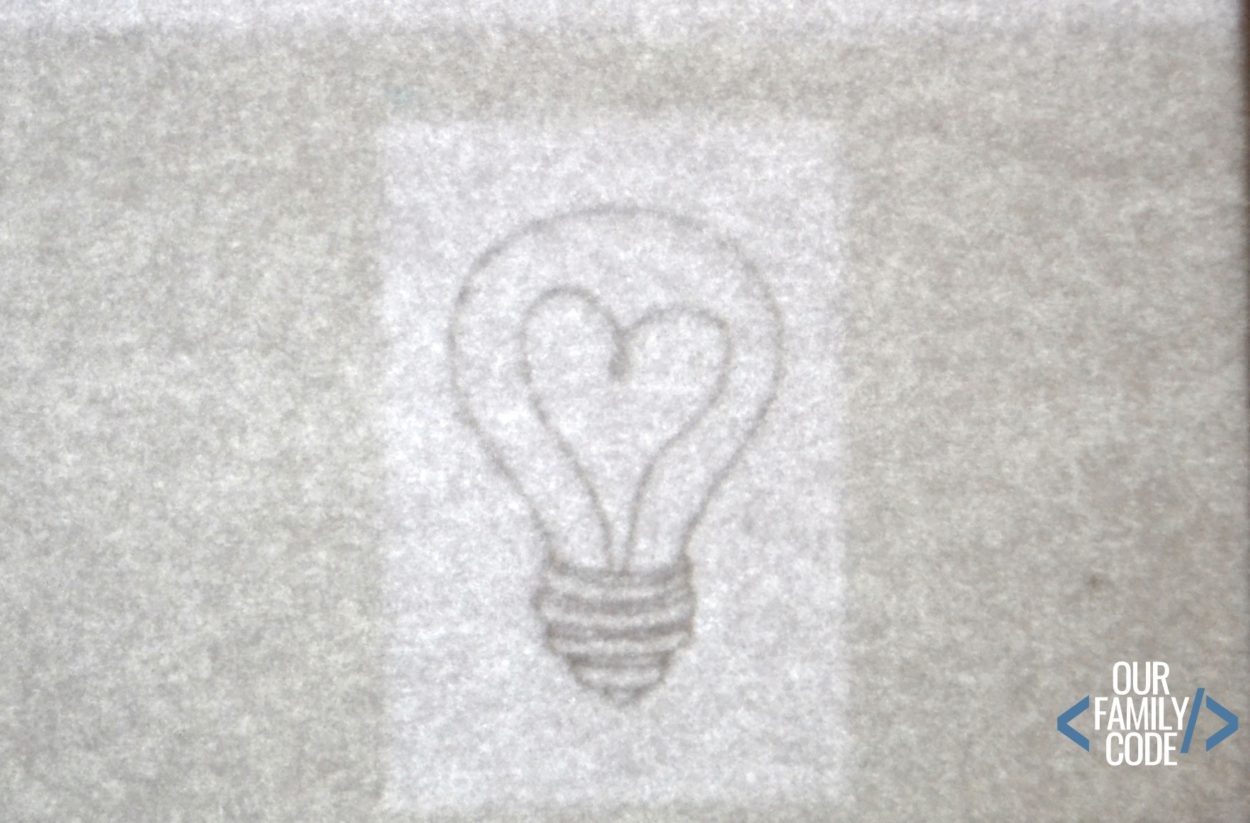
If you are drawing an paradigm on a piece of paper, make sure to trace it with a black marker. Identify a blank sheet of newspaper over your image and trace it with a reddish colored pencil/crayon/marker.
Understanding the Picture Airplane
Shift your paper over to the left or right based on whether you want that image to announced on the front of your picture plane or the back of your moving-picture show airplane.
The further you shift horizontally, the more that image will appear in front end or behind the aeroplane. Be sure not to shift it too far otherwise it will non work.
Nosotros decided to keep our lines shut equally we practiced in guild to get really defined 3D images.
So, use a clipboard to hold our images in place while we traced with our blueish colored pencil. The play a joke on is to make sure to exist as close to the original equally possible for the best 3D paradigm.
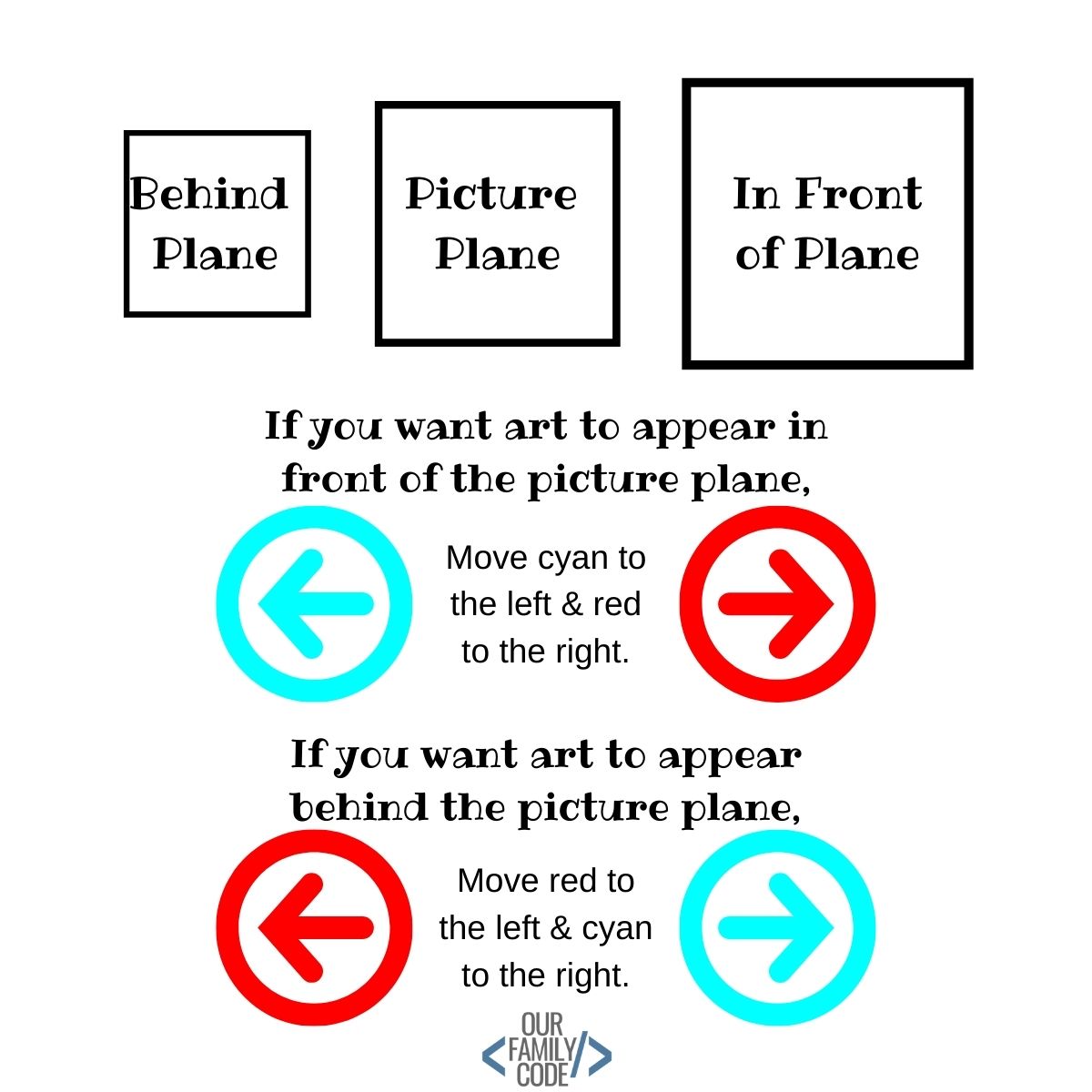
Project Tip: Your red and blue trace marks must be as close to identical as possible to make the best 3D art! Use a clipboard to hold your paper in identify and a ruler to shift your art more than precisely.
Use your 3D glasses to bank check out your 3D art! If you are having trouble seeing it, effort taking a pace back until y'all tin can come across the image more conspicuously.
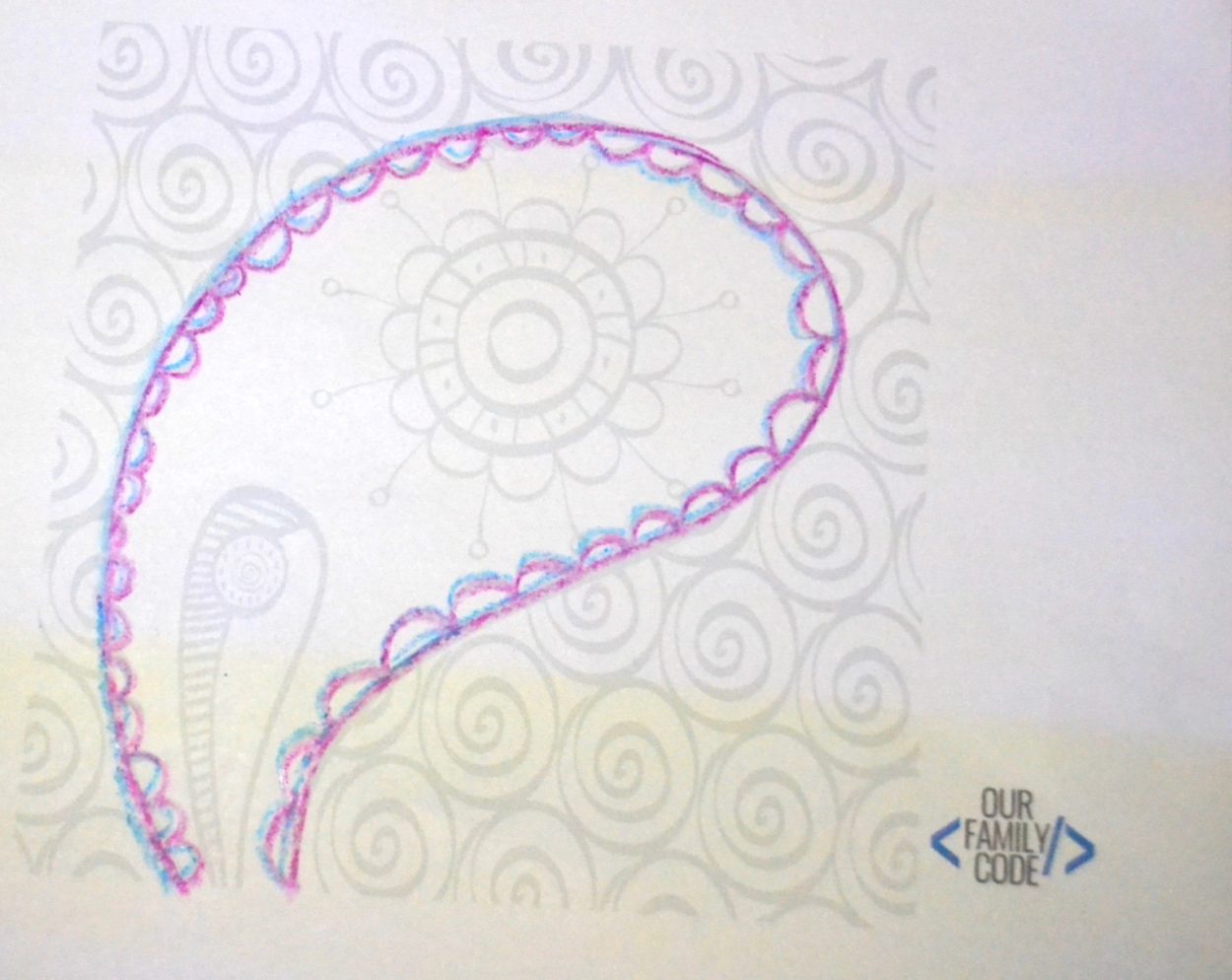
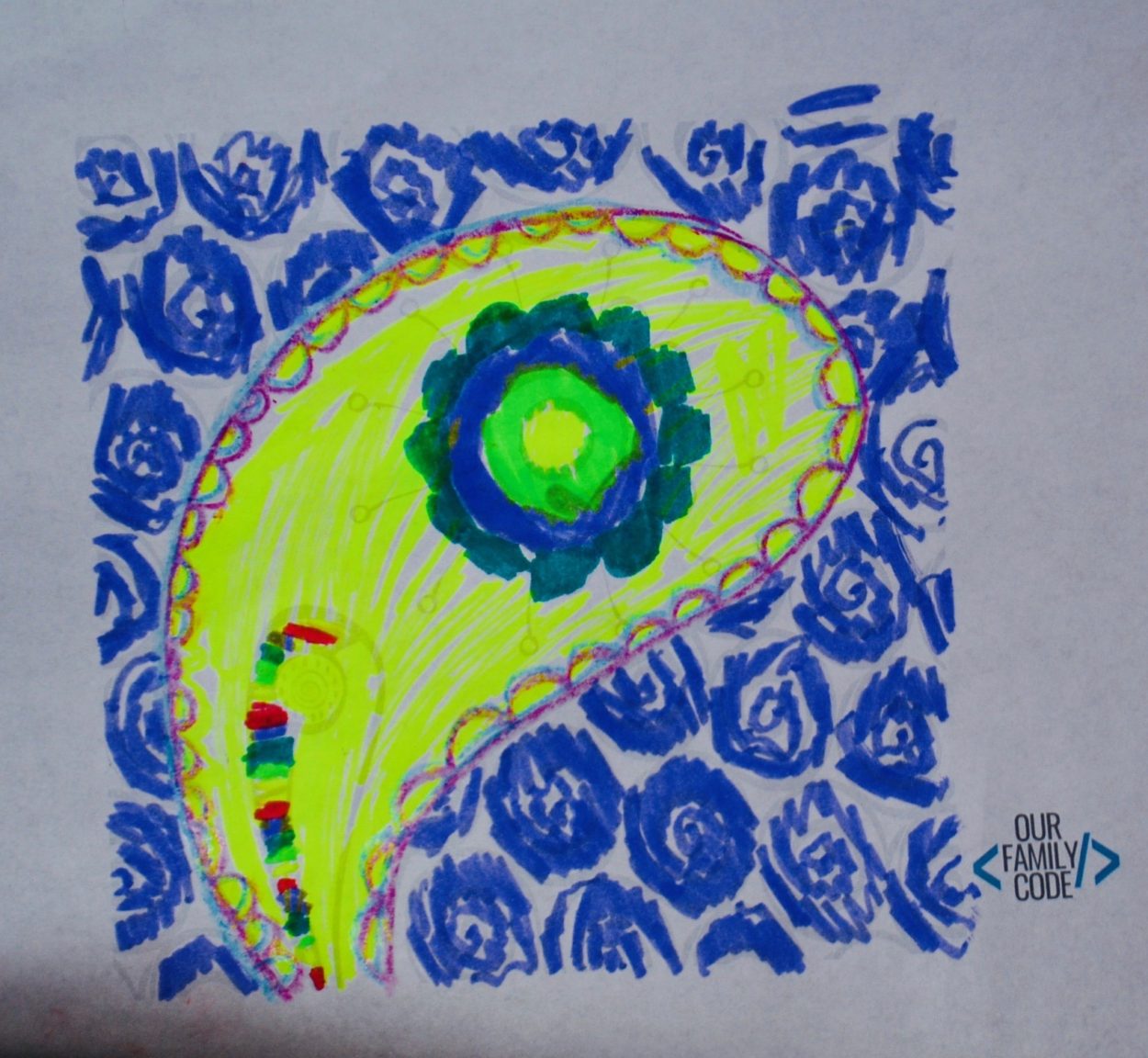
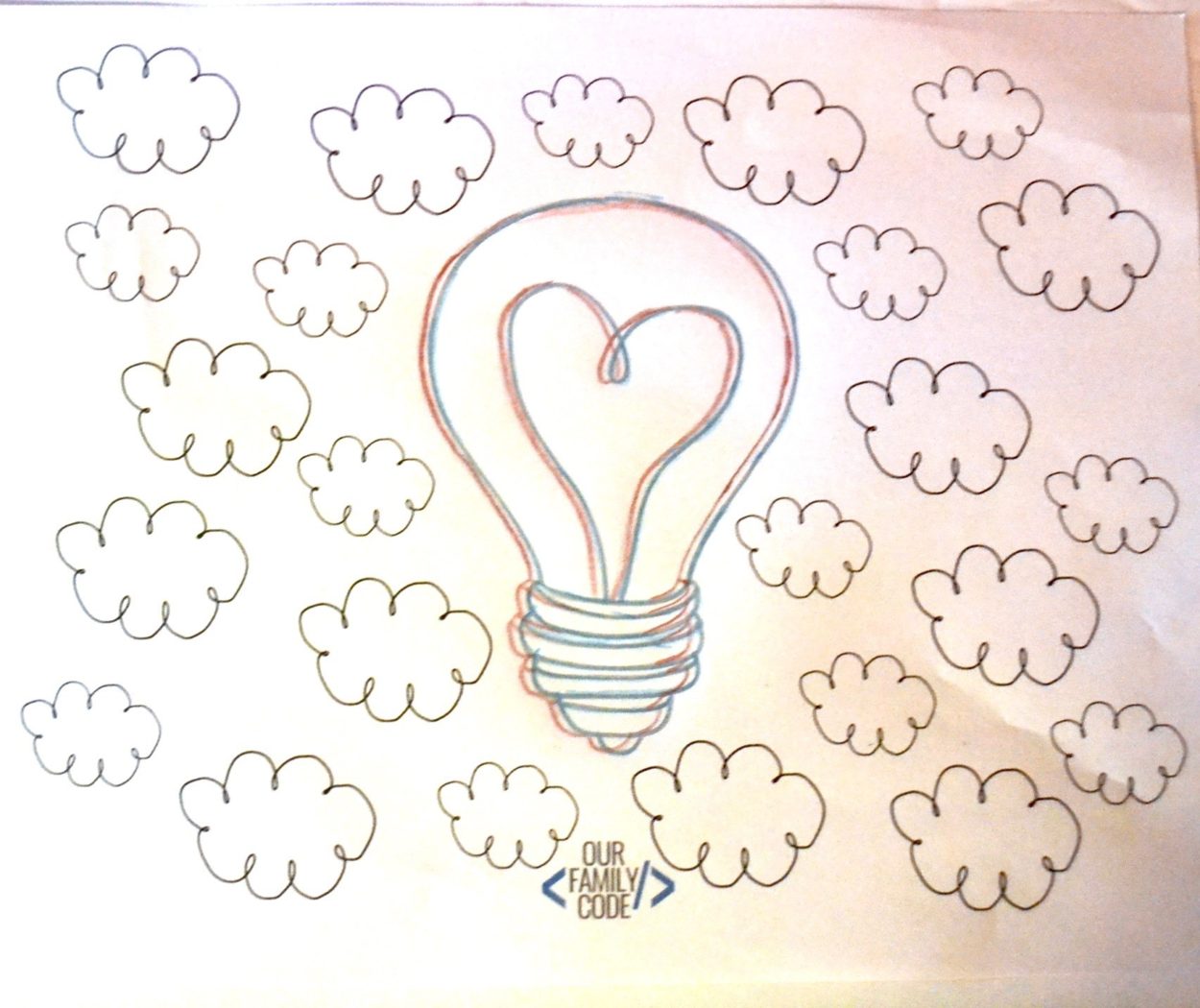
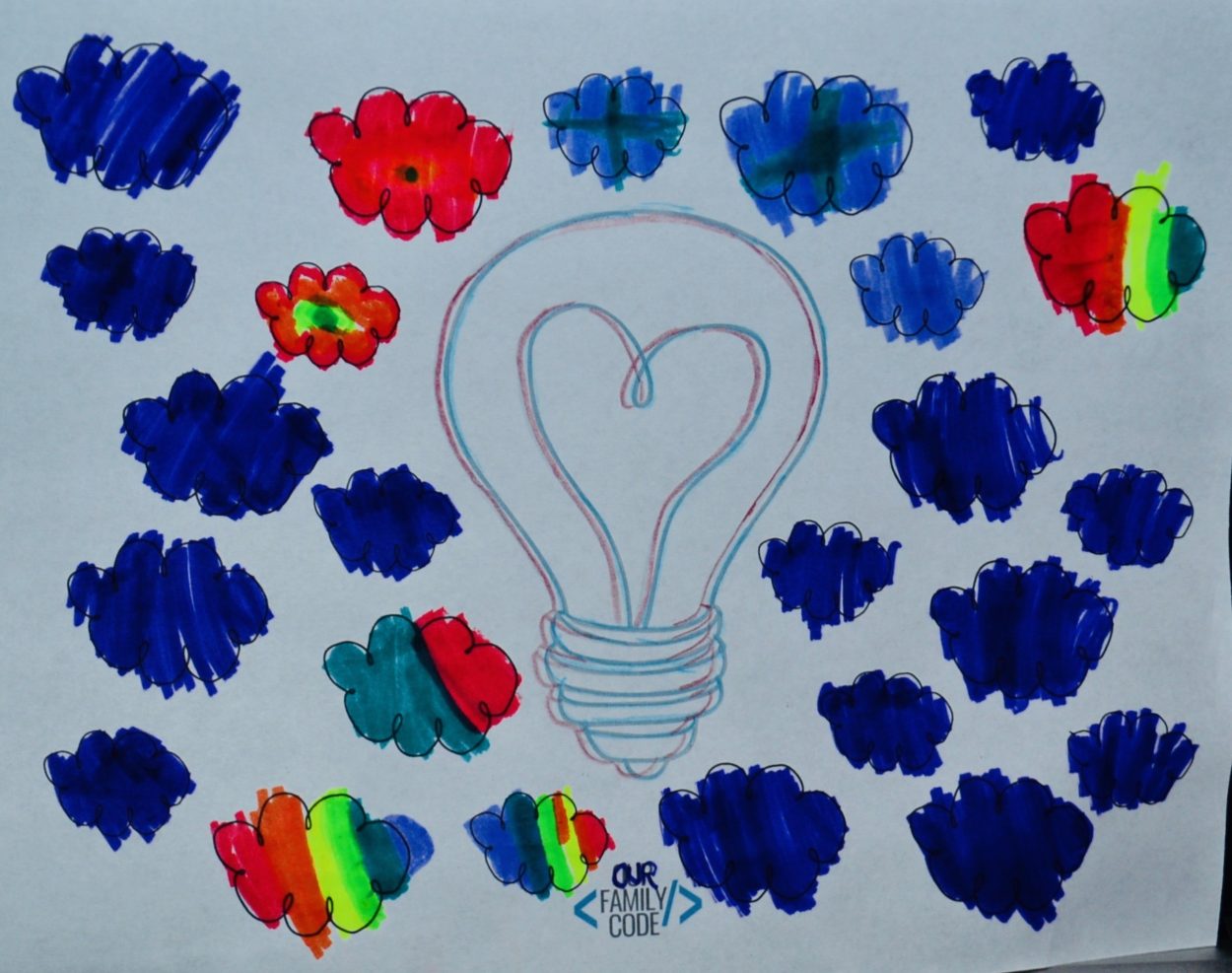
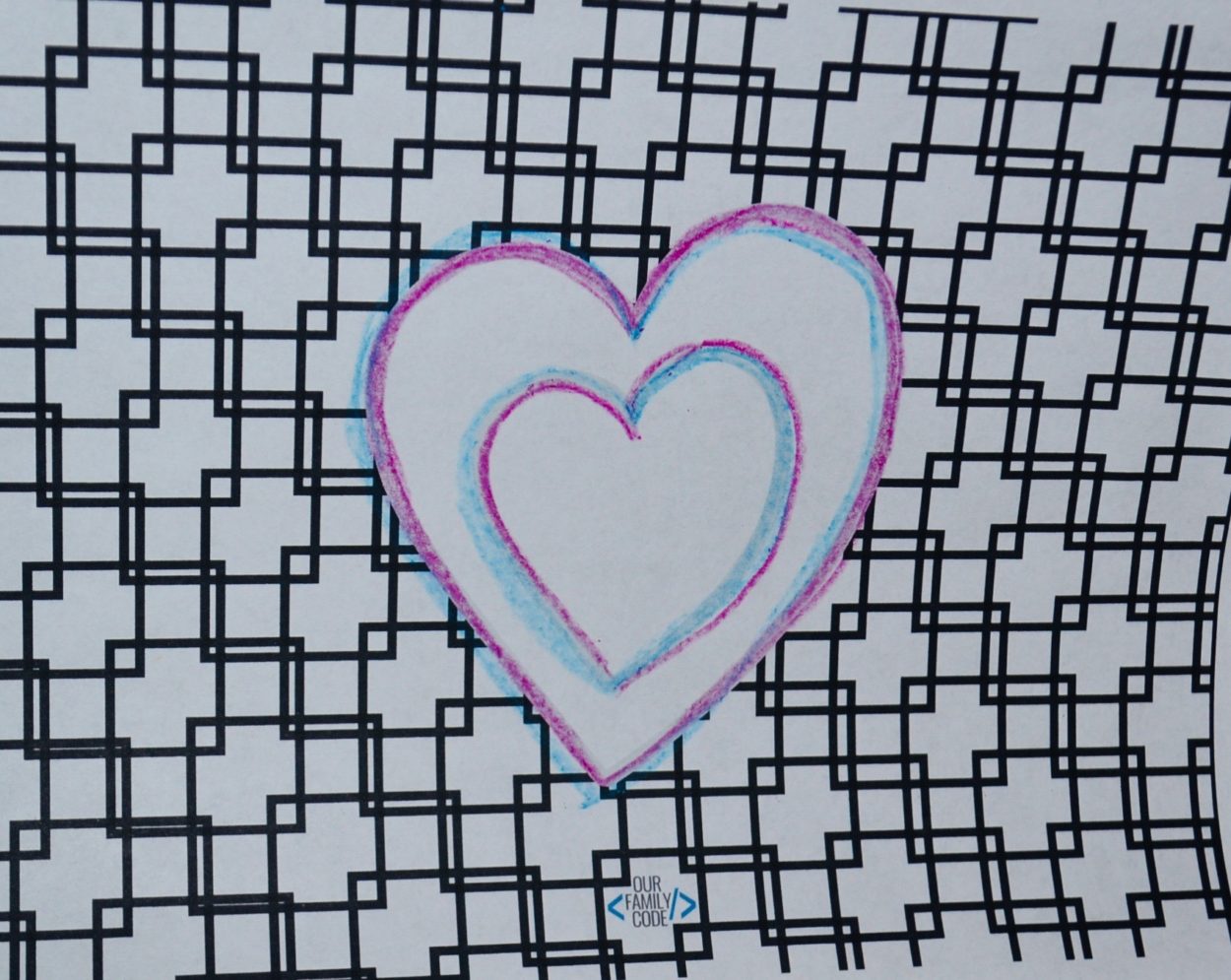
Calculation Engineering science to Brand Digital 3D Art
We decided to mix things up a bit and moved to technology to brand some 3D art. Peyton, my 5th grader, grabbed some doodles and gave them a try.


We used cyan (#0000ff) and red (#ff0000) for our two colors. We had to utilize stock images because this site is a commercial site, but y'all can grab tons of doodles and transparent background (PNG) images from Google that you lot can use for personal use purposes.


Peyton and I decided to make a 3D coloring book that Charlotte could exercise since she was still a little too young to understand the technology aspect of this activity.


The Science Behind 3D Fine art
The red and blueish lenses of your 3D glasses mimic stereoscopic vision. The red lens of your 3D glasses hides the red lines and the blue lens hides the bluish lines of your 3D art.
The human encephalon sees these images and perceives the 3D structure due to the differences between them. How cool is that!?


Download Your Costless 3D Coloring Book
This 3D art coloring book is a great way to learn about anaglyph 3D fine art. The book contains pictures that are slightly beginning from i another that can be traced with red and cyan in order to create anaglyphs that can exist viewed with red blue 3D glasses.
The directions for the coloring book are pretty simple:
- The darker gray color is for red.
- The lighter greyness colour is for bluish.
- Trace the red over the darker gray color start and so trace blue.
- Blue can overlap red, but it cannot overlap bluish.
- The last two pages are for fun. Run across if you can trace the main greyness line with red and then shift slightly for your bluish line.
<<<CLICK Hither TO Download your complimentary 3D Art Coloring Book>>>
Stone the STEAM Community Initiative
This activity was used as part of our Stone the STEAM community initiative. The Stone the STEAM Team is dedicated to providing free monthly STEAM activities to families in local towns. We decided to kick off our STEAM dream in our own town of Stoughton, Wisconsin.
We claiming our readers and schools that visit our site to accomplish out to the community and use our free activities to spread STEAM learning opportunities to kids that might not have admission to these materials or lessons. To make it like shooting fish in a barrel, you can impress lessons from our website that we've used for our Stone the STEAM initiative.
Y'all tin can also print this activity for your ain employ as well!
We do not requite permission for this activeness to be sold or used for commercial purposes.
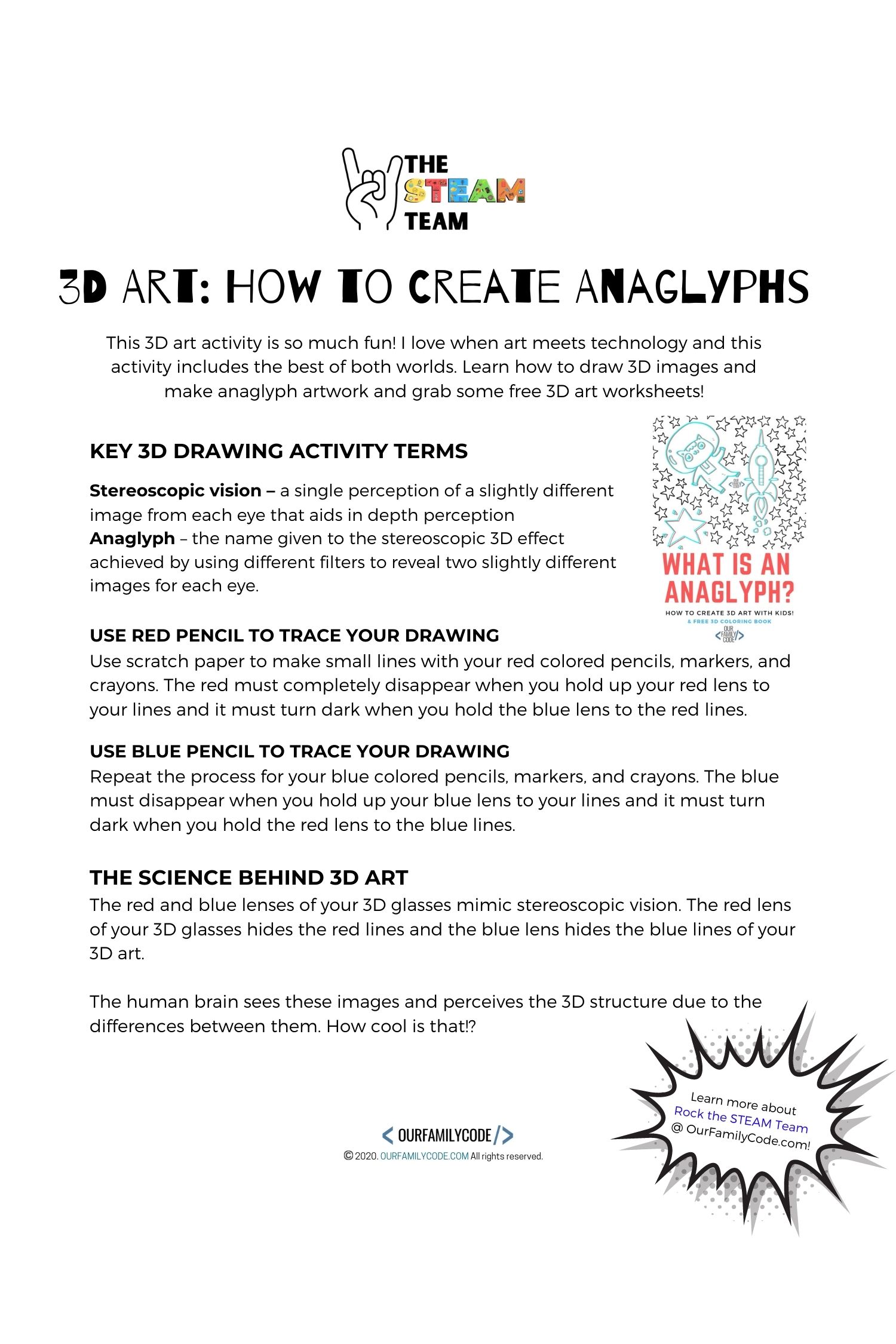
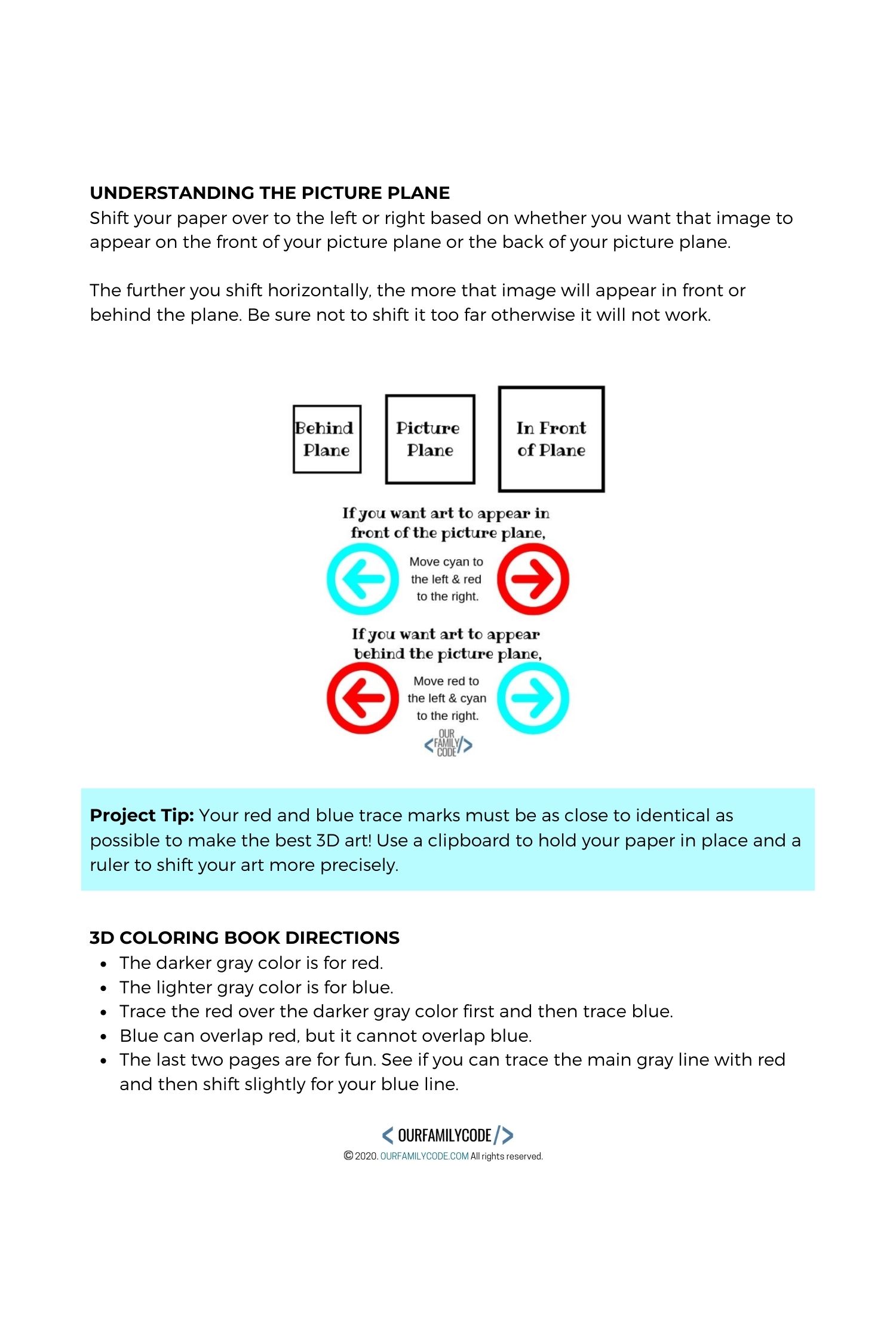
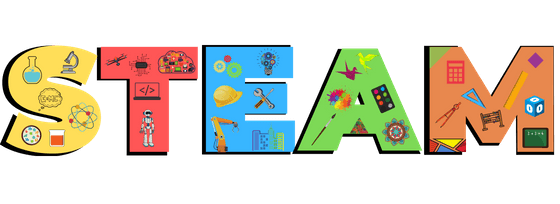
This 3D art activity already includes Science, Technology, and Art! Bank check out how to include other STEAM buckets!
Engineering – Make your ain 3D glasses! You tin can absolutely make your ain 3D glasses using a articulate plastic (similar an onetime CD example) and some dry erase markers.
Math – Employ a ruler to measure the altitude between your blood-red and blue lines or use a ruler to determine how far you are shifting your paper to mark your blue lines. What distance produces the best results on your moving picture aeroplane? Discuss the differences.
Some Books to Read with Your Activeness
We dearest incorporating books into our activities. Here are some great books nigh art to read with your 3D art activity!
- The Dot past Peter H. Reynolds
- STEM Doodle Volume by Sumita Mukherjee
- Sky Colour by Peter H. Reynolds
Oft Asked Questions nigh Anaglyph Art
What is an anaglyph?
An anaglyph is a still picture that is made with two slightly offset identical drawing in contrasting colors (unremarkably carmine and cyan) to create a stereoscopic 3D upshot when viewed through two correspondingly colored filters (like cherry blue 3D spectacles)
What is Stereoscopic vision?
Stereoscopic vision is a single perception of a slightly dissimilar image from each middle that aids in depth perception.
How to Cerise Blue 3D glasses work?
The blood-red and bluish lenses of your 3D glasses mimic stereoscopic vision. The red lens of your 3D glasses hides the red lines and the blue lens hides the blue lines of your 3D fine art.

31 Days of Low-Prep STEAM Activities for Kids
This activity is part of our 31 Days of Low-Prep STEAM Activities for Kids. Every activeness focuses on each of the buckets of STEAM (Science, Applied science, Applied science, Art, & Math) although these integrated projects fit in more than 1 bucket.
You and your kiddos are going to love all of the activities that we take in shop! Visit the 31 Days of Low-Prep STEAM Action hub and pin it, so you lot can come back and visit it daily!
PIN THIS IMAGE TO SHARE THIS Low-PREP STEAM Activeness!
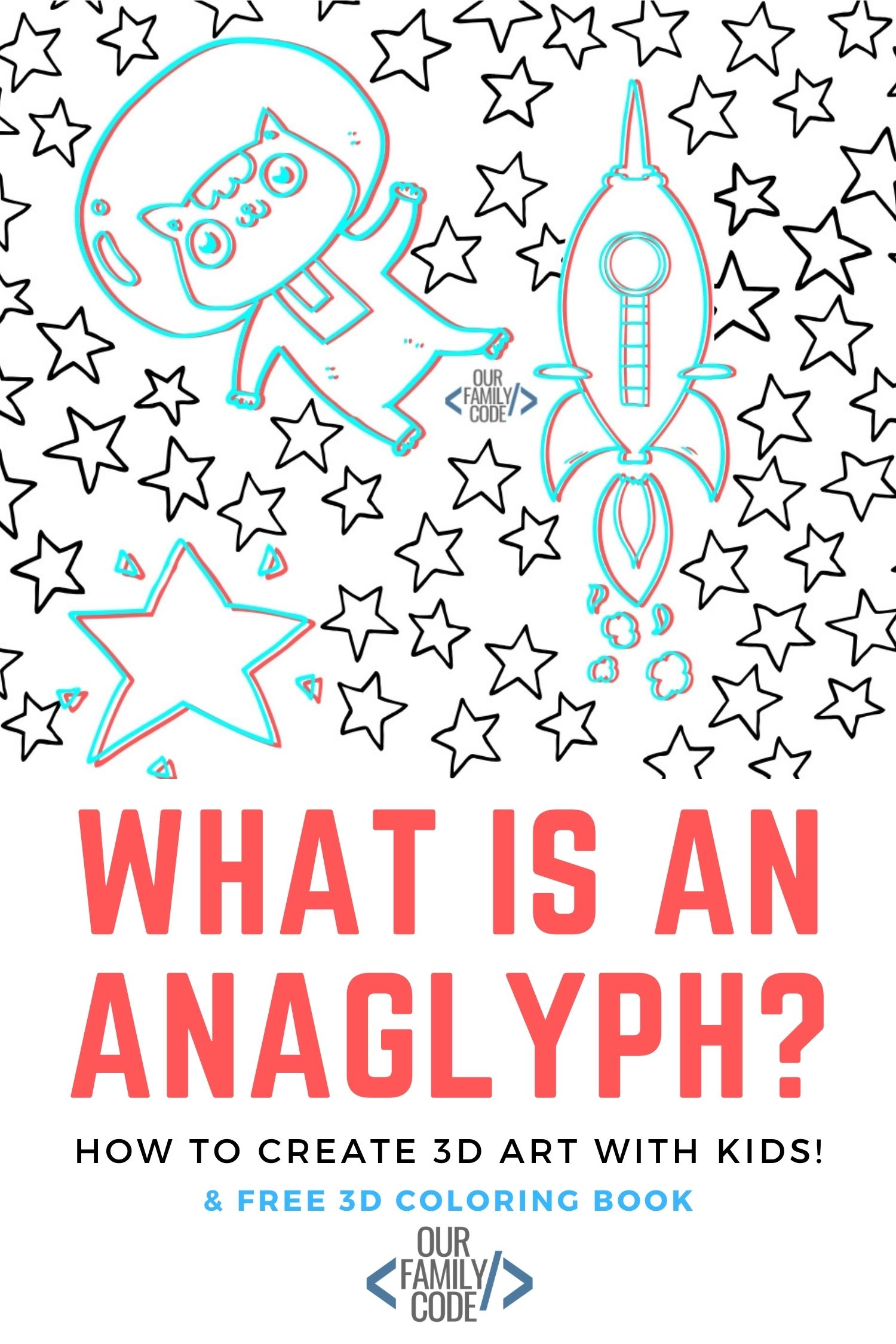
Salt Painting: Learn about Absorption!
Acquire almost polar molecules and assimilation with this common salt painting activity! This is such an like shooting fish in a barrel art projection for kids with scientific discipline that is swell for preschoolers through tweens!
How to Make Constellation Art STEAM Action
This constellation art action is great for introducing constellations and sparking a sense of wonder for galaxies and planets above while too helping kids to recognize patterns in the sky by observing, describing, and turning them into art!
Plastic Bottle Collywobbles Recycled Art
Make plastic bottle butterflies with this easy recycled art activeness and learn about Monarch butterfly migration and how they find shelter and food during their journey!
Meet Toni, the Maker Mom behind Our Family unit Code

Hey there, I'yard Toni! I'm a Market Research Analyst & Business organisation Development Guru that finds my joy in unleashing my children's curiosity by exploring STEAM concepts with my fantastic v!
When I'm not chasing toddlers or raising tweens, you can detect me vehement things upwardly and putting them back together over here at Our Family Code.
I am the possessor and content creator of multiple educational websites designed to increase access to STEAM & STEM instruction with a focus on didactics calculator scientific discipline and coding to kids of all ages!
Yous can also find out more about me by visiting ToniGardner.com!
Source: https://ourfamilycode.com/3d-writing-steam-activity/
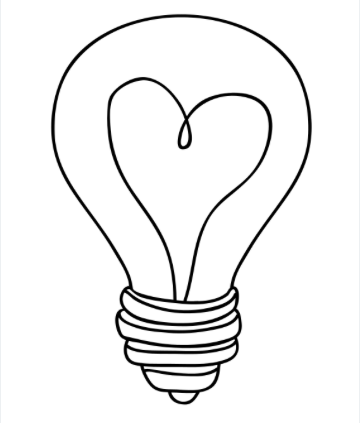
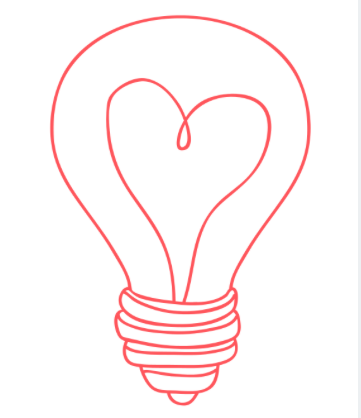
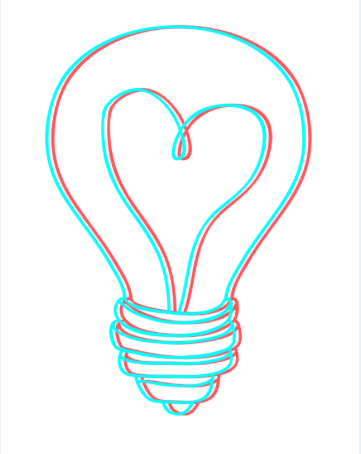
0 Response to "how to draw 3d butterflies"
Postar um comentário